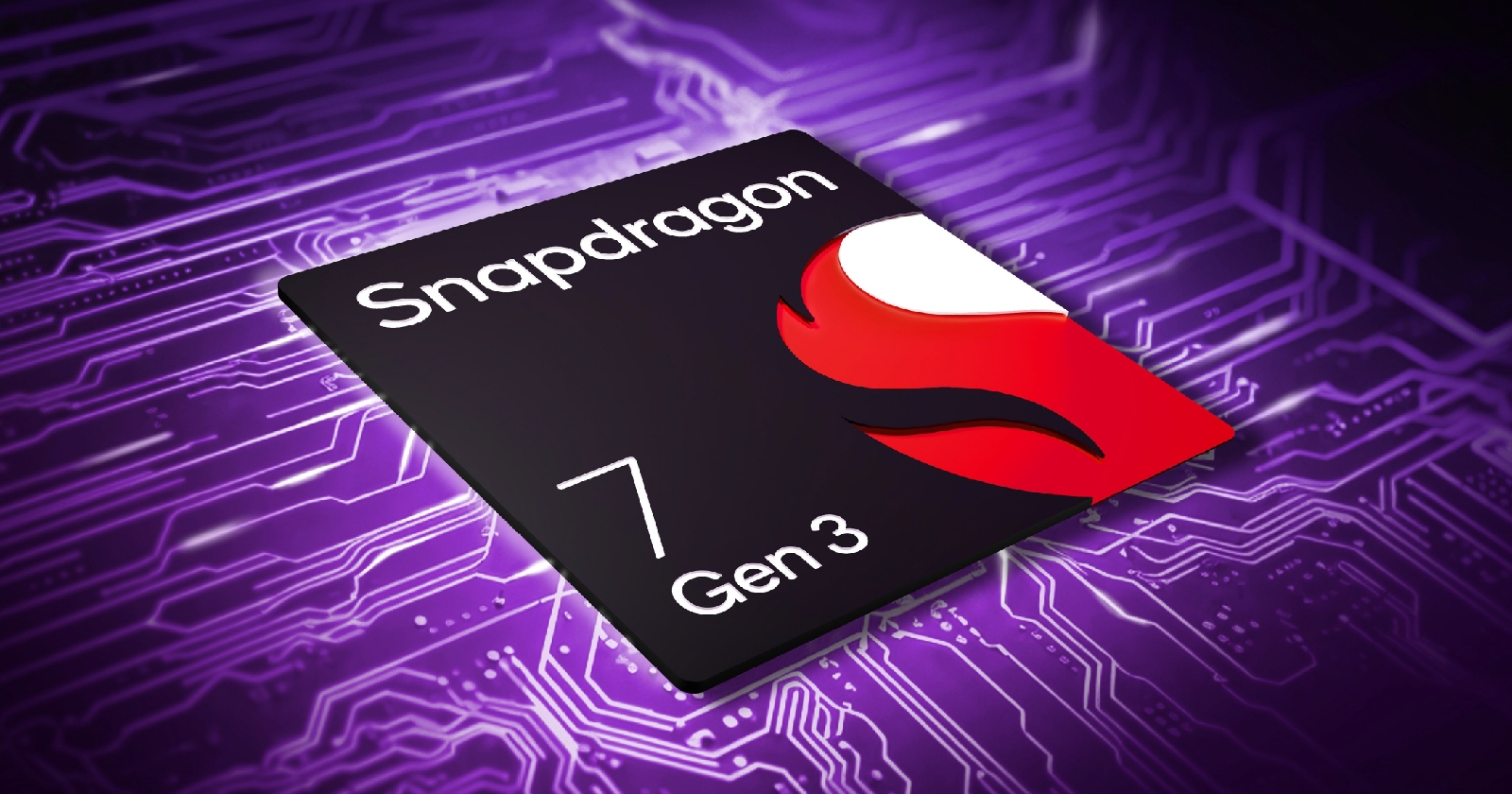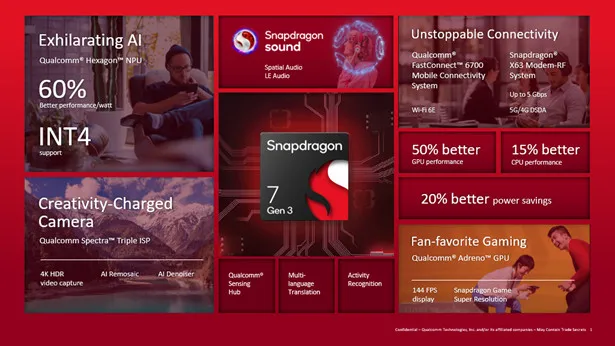Smartphones are perhaps the sector with the largest market in the technology world. As such, companies that produce the hardware parts of the devices are also in the race. When we look at the processors of smartphones, we see that Qualcomm occupies an important place. The company came up with a long-awaited mid-range model today.
Snapdragon 7 Gen 3 is produced with TSMC’s 4nm process technology
Qualcomm added another model to the 7 series, which is described as mid-range. The company produced the Snapdragon 7 Gen 3 processor with 4nm process technology. According to the introduction, the model offers a 15 percent improvement in CPU performance and 20 percent power saving compared to its predecessor, Snapdragon 7 Gen 1. Additionally, the Adreno GPU is 50 percent faster.

The new Snapdragon processor has a 1+3+4 CPU sequence. The processor includes 1 2.63 GHz ARM Cortex-A715 main core, 3 A715 performance cores (maximum 2.4 GHz) and 4 Cortex-A510 efficiency cores (maximum 1.8 GHz).
On the other hand, according to Qualcomm’s claim, the Qualcomm Hexagon NPU within the processor allows it to deliver 60 percent faster artificial intelligence performance per watt compared to its predecessor. When we look at the capabilities side, we see that it supports Adreno GPU, OpenGL ES 3.2, OpenCL 2.0 FP and Vulkan 1.3 APIs.

When we look at its features, Snapdragon 7 Gen 3 supports 4K or FHD + resolution displays at 168Hz with a 60Hz refresh rate. It also features Qualcomm Spectra ISP, which can handle 200 Megapixel main camera modules and record 4K HDR video at 60Hz.
Finally, the processor is powered by the Snapdragon X63 5G Modem-RF System. The feature provides download speeds of up to 5 Gbps over mmWave and sub-6 GHz bands. When we look at the connection side, we see Wi-Fi 6E and Bluetooth 5.3 standards.